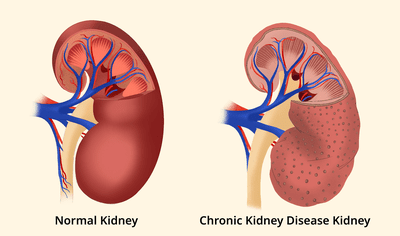Kidney stones are a common yet painful condition affecting millions of people worldwide. According to the National Kidney Foundation, one in ten people will experience a kidney stone in their lifetime. These hard mineral deposits form in the kidneys and can cause excruciating pain as they pass through the urinary tract. In this comprehensive guide, we’ll explore:
- What kidney stones are and their common types
- Effective treatment options
- Prevention strategies
- Foods to avoid
- What to expect during and after passing a kidney stone
What Are Kidney Stones?
Kidney stones, also known as renal calculi or nephrolithiasis, are solid masses made of crystals that form in the kidneys from substances in urine. They vary in size, from as small as a grain of sand to as large as a golf ball. The most common types of Kidney Stones are:
- Calcium Oxalate Stones: The most prevalent, formed when calcium combines with oxalate in the urine.
- Uric Acid Stones: Caused by high levels of uric acid, often linked to a diet rich in purines.
- Struvite Stones: Associated with urinary tract infections.
- Cystine Stones: Rare, resulting from a genetic condition called cystinuria.
As Mayo Clinic notes, “Kidney stones form when your urine contains more crystal-forming substances — such as calcium, oxalate, and uric acid — than the fluid in your urine can dilute.”
See Also: Chronic Kidney Disease: Early Detection Matters
Symptoms of Kidney Stones
Kidney stones may remain asymptomatic until they move within the kidney or pass into the ureter. Common symptoms include:
- Severe pain in the side, back, or below the ribs
- Pain radiating to the lower abdomen or groin
- Painful urination
- Blood in the urine (hematuria)
- Nausea and vomiting
- Frequent urination or urgency
- Cloudy or foul-smelling urine
The pain can be intense, often described as one of the most severe experiences, comparable to childbirth. If you experience these symptoms, consult a healthcare provider promptly.
Treatment Options for Kidney Stones
Treatment depends on the stone’s size, type, and location, as well as the patient’s overall health. Here are the most common approaches:
1. Conservative Management
For small stones (less than 6 mm), doctors often recommend conservative measures to allow the stone to pass naturally. According to the Cleveland Clinic, “Around 90% of small kidney stones (smaller than 6 mm) and 60% of large stones (larger than 6 mm) pass on their own.”
- Hydration: Drinking plenty of water (2–3 liters daily) helps flush out stones by diluting urine and preventing crystal formation.
- Pain Management: Over-the-counter medications like ibuprofen or prescription pain relievers may be used to manage discomfort.
- Medications: Alpha-blockers like tamsulosin can relax the ureter, facilitating stone passage. For uric acid stones, alkali citrate therapy (e.g., lemon juice or supplements) may dissolve stones as noted by WebMD.
2. Medical Procedures
Larger stones or those causing complications may require medical interventions including:
- Extracorporeal Shock Wave Lithotripsy (ESWL): Uses sound waves to break stones into smaller fragments that can pass in urine.
- Ureteroscopy: A thin tube is inserted through the urethra to remove or break up stones using a laser.
- Percutaneous Nephrolithotomy (PCNL): For very large stones, a small incision is made to remove the stone directly from the kidney.
- Surgery: Rarely needed, open surgery may be performed for complex cases, such as staghorn calculi.
Your doctor may recommend preventive treatment to reduce your risk of recurrent kidney stones if you’re at increased risk of developing them again. A study cited by Harvard Health notes that ESWL is effective for 70-90% of kidney stone cases, depending on size and location.
What Causes Kidney Stones? Symptoms and Risks
3. Medications for Specific Stone Types
- Calcium Oxalate Stones: Medications like thiazide diuretics reduce urine calcium levels.
- Uric Acid Stones: Allopurinol may lower uric acid levels, and alkalinizing agents can make urine less acidic.
- Struvite Stones: Acetohydroxamic acid (AHA) may be prescribed, though it requires careful monitoring due to side effects, NCBI notes.
- Cystine Stones: Medications like tiopronin reduce cystine levels in urine.
Preventing Kidney Stones
Prevention is key, especially for those with a history of kidney stones, as recurrence rates are high—up to 50% within 10 years. Here are evidence-based strategies:
1. Stay Hydrated
Drinking enough water is the most effective way to prevent kidney stones. The NIDDK recommends six to eight 8-ounce glasses daily, aiming for 2–3 liters of urine output. Clear or light-colored urine indicates adequate hydration.
2. Follow a Kidney Stone Diet
Diet plays a critical role in prevention. The Dietary Approaches to Stop Hypertension (DASH) diet, rich in fruits, vegetables, whole grains, and low-fat dairy, has been shown to reduce kidney stone risk.
3. Limit Sodium
High sodium intake increases calcium in urine, promoting stone formation. Aim for less than 2,300 mg daily, or 1,500 mg if you’ve had stones before. Avoid processed foods, canned goods, and fast food.
4. Moderate Animal Protein
Excess animal protein (red meat, poultry, eggs, fish) raises uric acid levels and reduces citrate, a stone inhibitor. Limit intake to 6–8 ounces daily, roughly the size of two decks of cards. Plant-based proteins like beans, lentils, and quinoa are excellent alternatives.
Skin Cancer: Warning Signs, Diagnosis, and Prevention
5. Increase Citrate Intake
Citrate prevents stone formation by binding to calcium and inhibiting crystal growth. Citrus fruits like lemons, limes, and oranges are rich in citrate. Dr. Ivan Porter II from Mayo Clinic advises, “Fruits and vegetables with high water content, like cucumber, tomato, and watermelon, also have natural citrate.”
6. Maintain Healthy Weight
Obesity increases the risk of kidney stones. A balanced diet and regular exercise can help maintain a healthy weight, reducing risk.
Foods to Avoid with Kidney Stones
Dietary choices significantly impact kidney stone formation. Depending on the stone type, certain foods should be limited or avoided:
For Calcium Oxalate Stones
Oxalate-rich foods can increase the risk of calcium oxalate stones, the most common type. Foods to limit include:
- Spinach, rhubarb, beets, and Swiss chard
- Nuts (peanuts, almonds, cashews)
- Chocolate and cocoa
- Black tea and soy products
- Sweet potatoes and okra
For Uric Acid Stones
High-purine foods contribute to uric acid stones. Limit:
- Red meat (beef, pork, lamb)
- Organ meats (liver, kidney)
- Shellfish (shrimp, lobster)
- Alcohol, especially beer
WebMD notes, “Eating too much red meat, poultry, eggs, and shellfish… makes your body make more uric acid.”
For All Stone Types
- High-Sodium Foods: Canned soups, processed meats, and fast food.
- Sugary Drinks: Sodas and drinks with high-fructose corn syrup increase stone risk.
- Excess Vitamin C Supplements: High doses (over 500 mg daily) can increase oxalate production.
Obesity: Causes, Risks, and Weight Management
What to Expect with Kidney Stones
Diagnosis
If kidney stones are suspected, your doctor may order:
- Imaging Tests: X-rays, CT scans, or ultrasounds to locate stones.
- Urine Tests: A 24-hour urine collection to analyze stone-forming substances.
- Blood Tests: To check for high levels of calcium, uric acid, or other risk factors.
- Stone Analysis: If a stone is passed, it’s analyzed to determine its type.
Passing a Kidney Stone
Passing a kidney stone can be extremely painful, with symptoms peaking as the stone moves through the ureter. The process may take days to weeks, depending on the stone’s size. You may be asked to strain your urine to catch the stone for analysis. Pain management and hydration are critical during this time.
How Long Does It Take to Pass a Kidney Stone?
- Small stones (≤4mm): Usually pass within 1-2 weeks.
- Larger stones (≥6mm): May require medical intervention.
According to Urology Care Foundation, about 60% of stones pass naturally if they are under 5mm, but larger stones often need treatment.
Recovery and Recurrence
Most people recover fully after passing a stone or undergoing treatment, but recurrence is common. In fact, having even one stone greatly increases your chances of having another, as stated by the National Kidney Foundation. Long-term prevention through diet and lifestyle changes is essential.
When to Seek Medical Attention
Seek immediate care if you experience:
- Severe pain that doesn’t subside
- Fever or chills (indicating possible infection)
- Persistent nausea or vomiting
- Difficulty urinating or blood in the urine
Natural Remedies and Supplements
Some natural remedies may complement medical treatment, but they should be used cautiously:
- Lemon Juice: High in citrate, it can help prevent stone formation. Add fresh lemon juice to water daily.
- Chanca Piedra: Known as the “stone breaker,” this herb may reduce stone size, though evidence is limited.
- Magnesium: May reduce oxalate absorption. Foods like avocados and legumes are good sources.
Always consult a healthcare provider before using supplements, as some, like high-dose vitamin C, can increase stone risk.
Pneumonia: Symptoms, Treatment, and Recovery Timeline
Lifestyle Tips for Kidney Stone Prevention
- Exercise Regularly: Physical activity supports overall health and weight management, reducing stone risk.
- Monitor Medications: Certain drugs (e.g., diuretics, antacids) can increase stone risk. Discuss with your doctor.
- Work with a Dietitian: A renal dietitian can create a personalized plan based on your stone type and urine profile.
Kidney stones are a painful but manageable condition with the right treatment and prevention strategies. By staying hydrated, following a kidney-friendly diet, and avoiding high-risk foods, you can significantly reduce your risk of recurrence. Treatment options range from conservative measures to advanced procedures, tailored to the stone’s characteristics. Always consult a healthcare professional for personalized advice, especially if you have a history of kidney stones.
Common Causes of Infertility in Men and Women and Treatments


